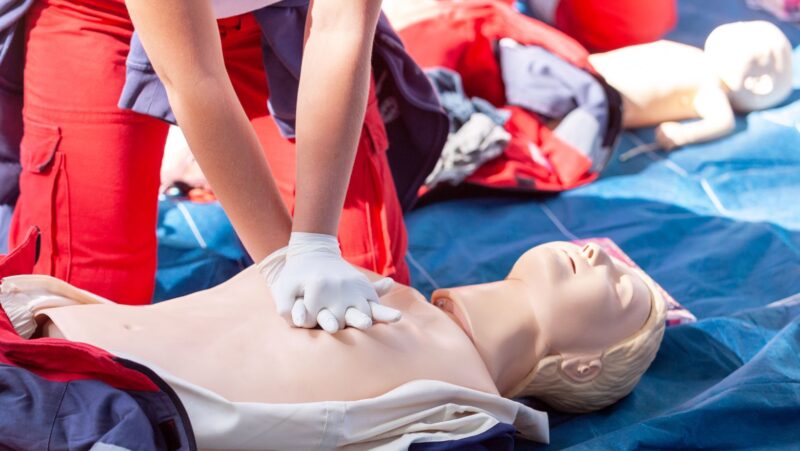
There are a variety of diseases that need long-term treatments, and some of them can be in the form of autism, cerebral palsy, multiple sclerosis, developmental delays, stroke, injuries to the spinal cord, and much more. With the right rehabilitation, people with injuries can often regain their independence or improve their cognitive function.
With the help of expert physical and occupational therapists, they can often work with patients to provide high-quality therapy. They can offer more holistic care to patients where they don’t only teach them how to become more independent, but they are also going to be more involved when it comes to providing them with positive self-esteem.
You can schedule an appointment with a speech-language pathologist or a physiotherapist because the right clinic for neurological physiotherapy may have a multidisciplinary stance. They make sure to address patient conditions and help children with autism navigate the complexities of life. Their programs can also be helpful for adults with brain injuries.
You just need a clinic that prides itself on prioritizing patient-centered care and also makes sure that the treatments are tailored to individual needs. Expect them to work with families as well so the exercises and changes are not only done in clinics but also inside the home as well.
What is the Range of Services that they Provide?
Occupational Therapy
These healthcare workers will make sure that their patients can participate in certain activities in a safe environment. Their role is to help people get dressed, take their medications, drive, and use phones that can be helpful during emergencies.
Most of the time, they can help individuals recover from brain and spinal cord injuries. They also have a tailored plan for people who have experienced burns, amputation, bone fractures, and hand injuries.
Overall, they make daily life easier, and they can also train the caregivers of the family to help patients bathe and eat. Techniques like memorization and planning are also taught, and they also advocate for home accessibility. See info about OT when you go to this page.
Physiotherapy
It’s often helpful for people who have back pain, sports injuries, stroke, Parkinson’s disease, multiple sclerosis, cystic fibrosis, and chronic obstructive pulmonary diseases. These are facilitated by licensed and regulated practitioners who work in hospitals or health center clinics where they can give advice and education to their patients.
Mobility and other tailored exercises can also be done during the session, and they may apply manual therapy. It involves using their hands to relieve stiffness and pain. Strengthening various parts of the body can also be part of their jobs.
Speech Language Pathologists
Those who are struggling with speech sounds or who have phonological disorders may also consult with a practitioner for help. They are going to help with swallowing problems or dysarthria and adults who are having issues with language and sounds can go to these therapists for help.
They may teach how to read words, how to follow societal roles, social communication, and fluency, and they can address stuttering. They can be found in hospitals or private clinics where they can also help those who have trouble swallowing and feeding.
Supporting Families Through the Process
There are clinics like the Abilities Neurological Rehabilitation that are dedicated not only to helping patients but also to the other family members. Most practitioners believe that the learnings and the techniques should also be practiced at home for faster healing, and they provide guidance on what the other members should do during this difficult situation.
They recognize that it’s important to alleviate some of the stress that the families are already feeling by supporting them, and this can also become helpful over the long run. Others are going to guide people when it comes to insurance or let them know about public assistance that can help fund their recovery.
Most of these experts will also equip the caregivers with the skills that they need to support their injured families throughout the rehab process. When the caregivers feel empowered when they see that they are making a difference, they are also going to be more cooperative with the process.
Clinics that provide community resources or support groups can also connect individuals who are experiencing the same thing. With the advice being shared and the daily struggles being out in the open, people will know that they are not alone in this journey that they have right now.
Changing Lives, One Step at a Time
As a whole, the right clinics will make the journey smoother, and they are going to have a more innovative approach to their patients. Some of these experts believe that they can transform the lives of countless people, and they can help them cope with an uncertain future.
From children learning to walk or talk for the first time to adults regaining independence after life-altering injuries, the impact of the clinic’s work can be heartfelt. These practitioners don’t just treat neurological conditions that you can read info here: https://dphhs.mt.gov/schoolhealth/chronichealth/neurologicaldisorders, but they also empower individuals to live fuller, more independent lives, restoring not just physical function but also their dignity.
It’s best to get a thorough assessment and evaluation so that the therapists will know the kind of treatment that can be applicable to your specific situation. Sessions can vary but it can typically last around 45 to 60 minutes depending on the goals and the situation of the patient. They can also introduce adaptive strategies to improve motor coordination and strength if necessary.














